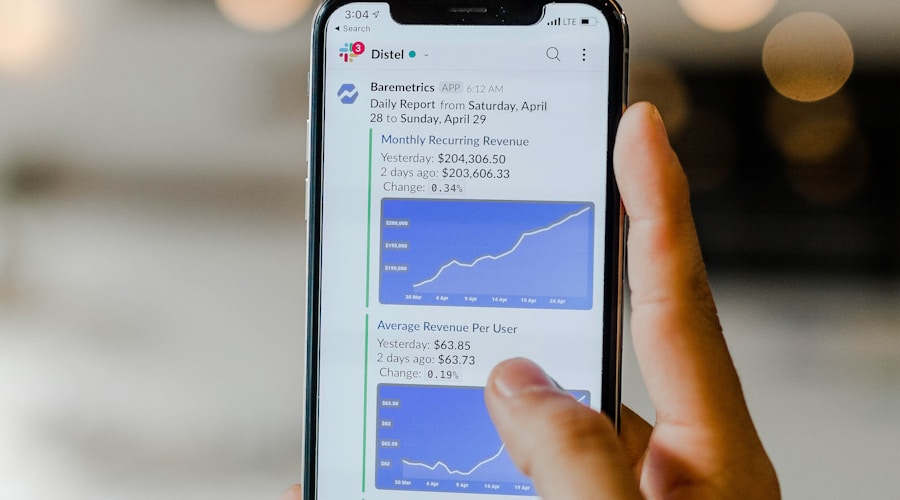So, you're thinking about buying a house? Congratulations! This is an exciting step toward achieving your dream of homeownership. However, before you start picking out paint colors and imagining the perfect backyard, it's essential to understand the world of mortgages.
Navigating the mortgage market can be overwhelming, but with the right knowledge and preparation, you can secure a loan that fits your needs and budget. From understanding interest rates to negotiating with lenders, there are many factors to consider when getting a mortgage.
Don't worry if this all sounds a bit daunting - we're here to help you understand the ins and outs of mortgages and find the best deal for you. With a little guidance, you'll be well on your way to becoming a homeowner.
Before we dive into the details, remember the wise words of Suze Orman: "Owning a home is a keystone of wealth – both financial affluence and emotional security." We're here to help you lay the groundwork for that wealth and security. Now, let's get started on your journey to finding the perfect mortgage for your new home.
Introduction to Home Loans
If you're like many people, the idea of buying a home can be both exciting and overwhelming. One of the biggest challenges is figuring out how to finance this significant purchase. This is where home loans, also known as mortgages, come into play.
A home loan is a loan you take out from a lender to help you purchase a property. It is a long-term commitment that can last anywhere from 15 to 30 years, so it's essential to understand the different aspects of home loans before diving in.
According to John D. Rockefeller, "The major fortunes in America have been made in land." This quote emphasizes the importance of property ownership and the potential financial benefits it can bring.
Understanding home loans is crucial to making the right decisions for yourself and your family. It's not just about getting the best deal; it's about ensuring that you're making a sound investment for your future.
Finding the Right Mortgage for You
Finding the right mortgage for yourself can seem overwhelming, but it's a crucial step in the home buying process. It's important to consider factors like the loan term, interest rates, and your own financial situation. As Dave Ramsey points out, "You want a mortgage that fits your budget and lifestyle, not one that's going to be a burden".
When it comes to choosing the type of mortgage, you'll want to weigh the pros and cons of fixed-rate and adjustable-rate mortgages. With a fixed-rate mortgage, your interest rate remains the same throughout the life of the loan, providing stability and predictability. On the other hand, an adjustable-rate mortgage typically starts with a lower initial interest rate, but it can fluctuate over time. As you weigh these options, consider how long you plan to stay in the home and your tolerance for potential changes in your monthly mortgage payment.
Additionally, you'll need to decide between a conventional loan and a government-backed loan. Conventional loans typically require higher credit scores and larger down payments, while government-backed loans, such as FHA or VA loans, often have more lenient requirements. Your eligibility for these different loan types will depend on factors such as your credit score, income, and the amount of money you can put towards a down payment.
Remember, finding the right mortgage for you is about finding a balance between your financial goals and your lifestyle. Take the time to explore the options available to you and consult with a mortgage professional to help you make an informed decision.

Understanding Interest Rates
When it comes to mortgages, one of the most crucial factors to consider is the interest rate. This will determine how much you ultimately end up paying for your home. The interest rate is essentially the cost of borrowing money from a lender, and can significantly impact your monthly payments and the total amount you pay over the life of the loan.
It's important to understand that interest rates can fluctuate based on various factors such as economic conditions, inflation, and the overall housing market. As financial expert Suze Orman advises, "Before you sign on the dotted line, make sure you understand how interest rates work and how they can affect your finances in the long run."
When considering different interest rate options, it's essential to compare and contrast the fixed-rate and adjustable-rate mortgages. A fixed-rate mortgage offers stability and consistency, as the interest rate remains the same throughout the loan term. On the other hand, an adjustable-rate mortgage (ARM) may start with a lower interest rate, but it can fluctuate periodically, potentially increasing your payments.
Financial guru Dave Ramsey explains, "You need to weigh the pros and cons of each type of interest rate to find the best fit for your financial situation. Don't just focus on the present, think about how the interest rate will impact your budget in the future."
When discussing interest rates with lenders, don't be afraid to ask questions and seek clarification. Understand how the rates are determined, what factors can cause them to change, and if there are any discounts or incentives available. As author Robert Kiyosaki emphasizes, "Knowledge is power. Educate yourself about interest rates and be proactive in negotiating for the best deal possible."
Remember, the interest rate is just one piece of the puzzle. Consider the overall loan terms, your financial goals, and your long-term plans when making a decision. By understanding interest rates and their impact on your mortgage, you can make an informed choice that sets you up for financial success.
Negotiating with Lenders
When it comes to securing a mortgage, don't be afraid to negotiate with lenders. Remember, they want your business, so it's in their best interest to work with you. As financial expert Suze Orman advises, "Never sign a mortgage contract until you're sure you've received the best deal possible."
Do Your Research: Before approaching a lender, make sure you've done your homework. Understand the current mortgage rates and terms, and compare offers from different lenders. This will give you leverage during negotiations.
Be Prepared to Bargain: When you meet with lenders, don't hesitate to negotiate for better terms. You can ask for a lower interest rate, reduced closing costs, or a longer lock-in period. According to mortgage advisor David Bach, "It's always worth asking for a better deal. You never know what you might get unless you try."
Highlight Your Strengths: Emphasize your financial stability and ability to make timely payments. Lenders are more likely to offer favorable terms to borrowers with a strong credit history and steady income.
Consider a Mortgage Broker: If negotiating with lenders seems daunting, consider hiring a mortgage broker. These professionals can negotiate on your behalf and help you find the best deal.
Remember, the key to successful negotiation is to be informed, confident, and willing to walk away if the terms aren't in your favor.

Costs Beyond the Loan
When it comes to getting a mortgage, it's crucial to consider all the costs that go beyond just the loan amount. Here are some additional expenses you may need to budget for:
Closing Costs: "It's important to factor in closing costs when comparing mortgage offers. These costs can include appraisal fees, title insurance, and attorney fees," says financial advisor Mark Cuban. Make sure you have enough funds set aside to cover these expenses.
Private Mortgage Insurance (PMI): If you're unable to put down 20% or more on your home, you may need to pay for private mortgage insurance. This can add to your monthly mortgage payments, so be sure to factor this into your budget.
Homeowner's Insurance and Property Taxes: Your lender may require you to escrow funds for homeowner's insurance and property taxes. You'll need to pay these on top of your monthly mortgage payment.
Home Maintenance and Repairs: Be prepared for ongoing maintenance costs once you're a homeowner. "You never know when something in your home might need fixing, so it's wise to budget for maintenance and repairs," advises real estate expert Robert Kiyosaki.
It's important to carefully consider these additional costs when determining how much you can afford to borrow. By being aware of these expenses, you can avoid any financial surprises down the road.
Securing a Favorable Rate
When it comes to securing a favorable rate on your mortgage, there are a few key factors to keep in mind. First and foremost, it's essential to shop around and compare rates from different lenders. As financial expert Suze Orman advises, "You've got to shop around. You've got to get at least three quotes to compare ." By doing this, you can ensure that you are getting the best deal possible for your unique financial situation.
Once you have gathered quotes from various lenders, don't be afraid to negotiate. According to mortgage broker, David Reed, "The rate you negotiate with the lender is not necessarily the rate you'll settle at. It's always a good idea to ask for better terms, especially if you have a strong financial profile ." Remember, the worst they can say is no, and you may be able to secure a more favorable rate by simply asking.
Another way to secure a favorable rate is by improving your credit score. Lenders use your credit score to determine the interest rate they will offer you, so take the time to check your credit report for any errors and work on improving your score if necessary. As financial writer Liz Weston notes, "A higher credit score can save you thousands of dollars over the life of the loan ."
Finally, consider the option of buying points to lower your interest rate. By paying upfront fees, known as points, you can reduce the interest rate on your mortgage. While this may require a larger initial investment, it can result in significant long-term savings. As mortgage expert Keith Gumbinger points out, "If you plan to keep your home and mortgage for a long time, paying points can be a smart move ."
In summary, securing a favorable rate on your mortgage involves shopping around, negotiating, improving your credit score, and considering the option of buying points. By taking these steps, you can increase your chances of securing a mortgage with a competitive interest rate that suits your financial needs.

Final Steps Before Signing
Before you sign on the dotted line, there are a few crucial steps you need to take to ensure you're getting the best deal on your mortgage.
First, it's essential to review the Loan Estimate provided by the lender. This document outlines the key details of your loan, including the interest rate, monthly payments, closing costs, and any prepayment penalties. Take the time to carefully go through each item and compare it with the initial offer you received. Don't hesitate to ask your lender about any discrepancies or unclear terms.
Next, consider seeking pre-approval for the loan amount before finalizing the deal. This will provide you with a clear understanding of how much you can afford to borrow and give you more negotiating power. As mortgage expert David Bach advises, "You want to talk to a mortgage professional and get pre-approved for a mortgage."
Once you've reviewed the Loan Estimate and secured pre-approval, it's essential to shop around for the best deal. Use online comparison tools and consult with different lenders to see if you can find a better offer. Personal finance guru Suze Orman suggests, "It's always good to compare rates."
Finally, don't be afraid to negotiate the terms of your mortgage. You have the right to request modifications to your loan, such as a lower interest rate or reduced closing costs. Financial journalist Jean Chatzky encourages borrowers to "negotiate for the best mortgage terms you can find."
By following these final steps, you can ensure that you're getting the best possible deal on your mortgage. Taking the time to review the loan details, seek pre-approval, shop around, and negotiate can potentially save you thousands of dollars over the life of your loan.
Conclusion
Congratulations on taking the first step towards understanding mortgages and getting the best deal for yourself. By learning about different types of home loans, interest rates, negotiating with lenders, and the costs beyond the loan, you have empowered yourself to make informed decisions about your financial future.
As you move forward, keep in mind the importance of securing a favorable rate and carefully considering all the costs involved. Remember, the final steps before signing are crucial, so take your time and don't rush into anything. As financial expert Suze Orman once said, "Owning a home is a great thing, but you need to understand what you are getting into."
Always remember that this is a big decision, and it's okay to seek help and advice from professionals if you need it. Taking the time to understand mortgages and securing the best deal for yourself will set you on the path to financial stability and peace of mind.
Now that you have the knowledge, go out there and find the best mortgage deal for yourself. Good luck on your homebuying journey!

2John D. Rockefeller, Random Reminiscences of Men and Events (1909)
3Dave Ramsey, Financial Peace (1992)
4Dave Ramsey, Financial Peace (1992)
5Suze Orman, The Money Book for the Young, Fabulous & Broke (2005)
6Robert Kiyosaki, Rich Dad Poor Dad (1997)
7Suze Orman, "The Money Book for the Young, Fabulous & Broke" (2005)
8David Bach, "Smart Couples Finish Rich" (2002)
9Mark Cuban, How to Win at the Sport of Business (2011)
10Robert Kiyosaki, Rich Dad Poor Dad (1997)
11Suze Orman, The Money Book for the Young, Fabulous & Broke (2005)
12David Reed, Mortgage Confidential (2017)
13Liz Weston, Your Credit Score, Your Money & What's at Stake (2012)
14Keith Gumbinger, Mortgage Market Guide (2010)
15David Bach, Smart Women Finish Rich (1999)
16Suze Orman, Women & Money (2007)
17Jean Chatzky, Make Money, Not Excuses (2006)
18Suze Orman, The Road to Wealth (2001)